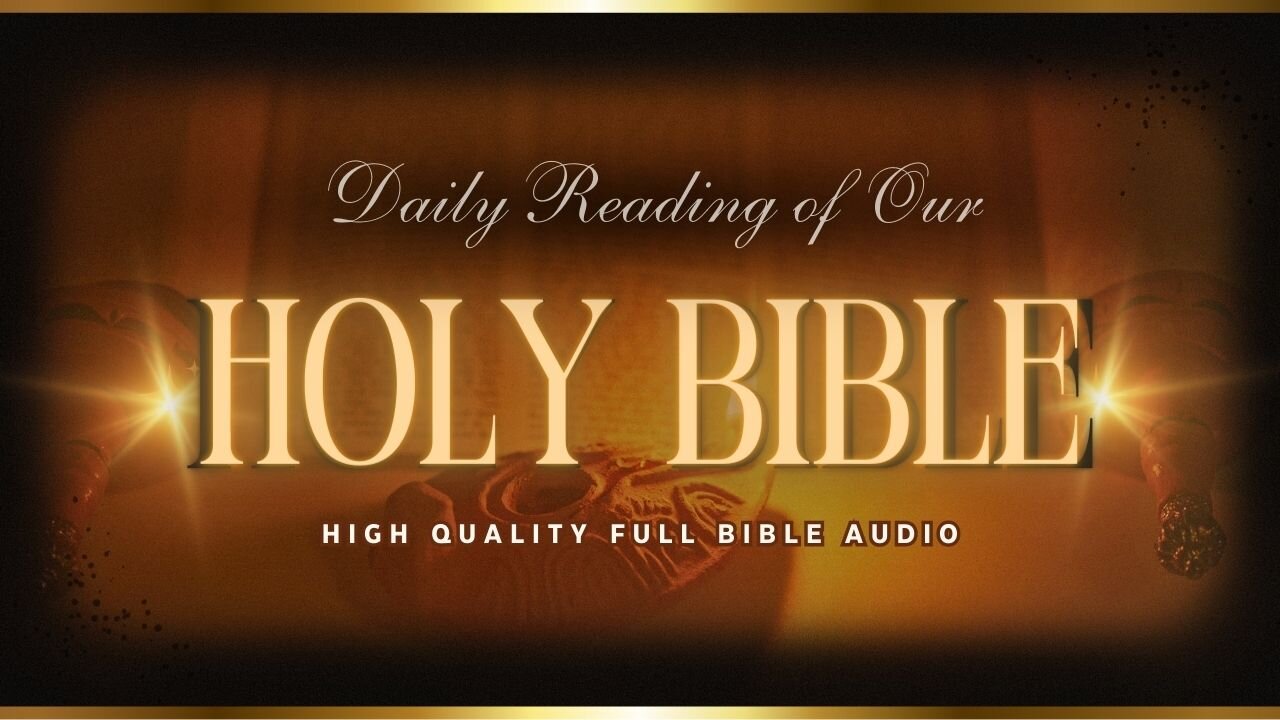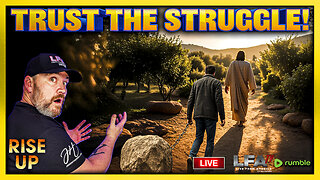Premium Only Content

Genesis 12:10-20 Psalm 31:19-24 Proverbs 13:22 Luke 9:10-17 John 6:1-14 Bible Reading Plan Audio
Genesis 12:10-20:
In this passage, Abram (later known as Abraham) and his wife Sarai (later known as Sarah) travel to Egypt due to a famine in the land of Canaan. As they approach Egypt, Abram becomes concerned that the Egyptians will kill him because Sarai is beautiful, so he asks her to say she is his sister. When they arrive in Egypt, Pharaoh's officials notice Sarai's beauty and bring her to Pharaoh, who takes her into his palace. Because of Sarai, Pharaoh treats Abram well and gives him sheep, cattle, male and female donkeys, male and female servants, and camels. However, God sends plagues on Pharaoh and his household because of Sarai. Pharaoh learns that Sarai is Abram's wife and confronts Abram, asking why he lied. Pharaoh then sends them away, along with all their possessions.
Psalm 31:19-24:
In this portion of Psalm 31, the psalmist extols God's goodness and faithfulness. They praise God for His abundant goodness and the care He provides to those who seek refuge in Him. The psalmist acknowledges God's protection and asks Him to preserve His people from harm. They exhort others to love the Lord and take courage, for He will strengthen their hearts and deliver them from trouble.
Proverbs 13:22:
This proverb highlights the principle of generational wealth and inheritance. It suggests that a good person leaves an inheritance for their children's children, indicating a legacy of righteousness and wise stewardship. The proverb emphasizes the importance of investing in future generations and passing down blessings that extend beyond one's own lifetime.
Luke 9:10-17:
In this passage, Jesus withdraws with His disciples to a solitary place near Bethsaida. However, the crowds follow them, and Jesus welcomes them, teaching them about the kingdom of God and healing those in need. As evening approaches, the disciples suggest sending the crowd away to find food, but Jesus instructs them to give the crowd something to eat. With only five loaves and two fish, Jesus miraculously feeds the five thousand men, along with their families, satisfying everyone's hunger.
John 6:1-14:
Similar to Luke 9:10-17, this passage describes the feeding of the five thousand by Jesus. A large crowd follows Jesus because they have seen His signs and miracles. Jesus asks Philip where they can buy bread to feed the crowd, testing him. Andrew brings a boy with five barley loaves and two fish to Jesus, but questions whether it will be enough. Jesus blesses the food, and it miraculously multiplies, feeding the entire crowd with plenty of leftovers. This event demonstrates Jesus' power and provision, as well as His compassion for those in need.
-
 LIVE
LIVE
Dear America
48 minutes agoIs Trump Going To Federalize DC TODAY?! + Biden Pardons VOIDED?!?!
11,665 watching -
 LIVE
LIVE
Matt Kohrs
41 minutes agoMarket Open: NEW HIGHS INCOMING 🚀 🚀 🚀 || Live From Toronto
605 watching -
 LIVE
LIVE
Wendy Bell Radio
4 hours agoThe Hunters Are Now The Hunted
4,838 watching -
 LIVE
LIVE
Tate Speech by Andrew Tate
1 hour agoEMERGENCY MEETING EPISODE 113 - THE NEXT STAGE
9,507 watching -
 1:19:40
1:19:40
JULIE GREEN MINISTRIES
2 hours agoLIVE WITH JULIE
32.1K118 -
 LIVE
LIVE
LFA TV
14 hours agoLFA TV ALL DAY STREAM - MONDAY 8/11/25
7,045 watching -
 LIVE
LIVE
Chicks On The Right
3 hours agoMTG fighting w/Levin, Pritzker humiliated by Welker, Mamdani squeals like a girl, and psychotic libs
1,759 watching -
 LIVE
LIVE
The Bubba Army
2 days agoAlligator Alcatraz Closed?! - Bubba the Love Sponge® Show | 8/11/25
4,115 watching -
 29:03
29:03
DeVory Darkins
15 hours ago $6.40 earnedDemocrat Governors painfully HUMILIATED Trump drops BRUTAL WARNING for DC officials
7.03K54 -
 14:44
14:44
Preston Stewart
18 hours ago $1.15 earnedTrump's Cartel Crackdown
5.08K6